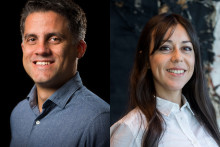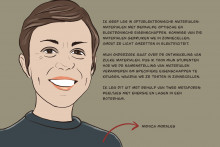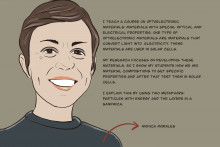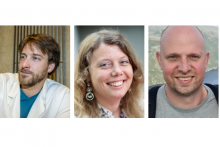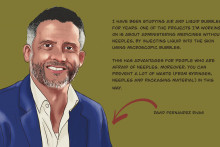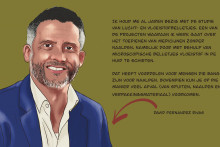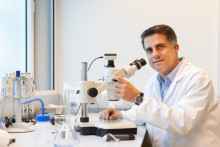BuBble Gun. Not a name of a toy, but of a research project now funded by the ERC Starting grant. Led by David Fernandez Rivas (Mesoscale Chemical Systems group, TNW Faculty), the research is focused on the development of needle-free injections – a sort of a ‘bubble gun’ as the technology is based on ‘pushing’ liquid into the skin using laser-made bubbles.
‘More efficient and less painful’
‘Needle-free injections are the ultimate application of this technology, but there are scientific challenges that we need to overcome first,’ says Fernandez Rivas. ‘First, the energy source. Using very small and powerful lasers, we need to provide the right energy to reach specific penetration depths into soft matter such as skin. Secondly, we are talking of injecting very small liquid droplets, but not all medicine formulations behave the same, and they therefore cannot be injected with the same technology. Lastly, everyone’s skin is different and you can’t just cut the skin open and look what happened. BuBble Gun is aimed at overcoming these challenges.’
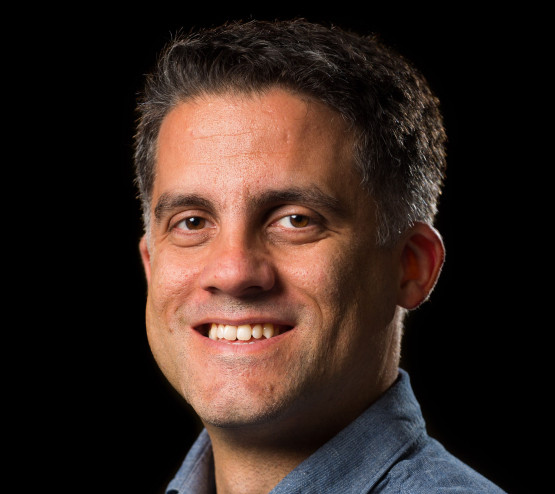
David Fernandez Rivas. Photo by: Gijs van Ouwerkerk
For David Fernandez Rivas, the ERC Starting grant is exactly what its name suggests – only the start. After this, he aims to go for the ‘Proof of Concept grant’. ‘My goal is to get all the science, wrap it up and make it useful for society,’ he says. ‘Needle-free injections could be more efficient and less painful. They could be used for injecting insulin or other drugs, they could help us improve vaccination rates and create more targeted medicine.’
‘It’s like a swimming competition’
‘Getting the grant was indeed great news after the summer,’ says the scientist. ‘But my first reaction was: I have to keep quiet! Because I was just holding my sleeping baby when I read the news and I could not start screaming,’ he adds with a laugh. ‘It is certainly a nice confirmation of the relevance of your work. Applying for the grant can be nerve wracking because it is a lengthy process and you don’t know who are the other competitors. It’s like a swimming competition where you jump in the water, having no idea who are you racing against. So, it is a bit surreal when you do get the grant.’
Creating new materials
‘It is such a defining step in my career. It’s like winning the world cup,’ says Monica Morales Masis (Inorganic Materials Science Group, TNW Faculty) about receiving the ERC Starting Grant. ‘It feels like you are on the top because you achieved something you really wanted. But at the same time, you immediately start thinking “Now we have to show that this is a breakthrough. We have to get to work”.’

Monica Morales Masis. Photo by: Frans Nikkels
Morales Masis is indeed aiming for a true breakthrough. Within her project CREATE, she wants to discover and create new hybrid materials. ‘To be precise, I’m proposing a method to explore a whole range of compositions of hybrid organic-inorganic materials,’ says the Assistant Professor. Specifically, the researcher is focusing on hybrid halide perovskites. ‘These materials are very popular nowadays because they can be used for good solar cells. However, these materials are not stable and they currently contain lead, which is toxic. These two factors limit the applicability in large-scale solar panels, which is why I want to find new compositions of this family of materials.’
The scientist believes she received the grant mainly thanks to the ‘innovative method’. ‘It is a technique in vacuum, for which we need special chambers and lasers. This will allow us to have a system that is flexible enough to find new compositions of this family of hybrid materials that are stable and non-toxic, and that is in-vacuum to control their growth.’ If successful, the research could lead to a broad spectrum of applications beyond solar cells, including optical sensors, LED’s and X-ray detectors.
Three grants for Monica Morales Masis
Monica Morales Masis is the recipient of three separate grants, one for each of her three research lines. On top of the ERC Starting grant, she has been awarded the NWO START-UP funding worth €400.000 for research into p-type transparent materials. She has also acquired funding through the SOLAR-ERA.NET network for her work on transparent conducting oxide materials for solar cells.


